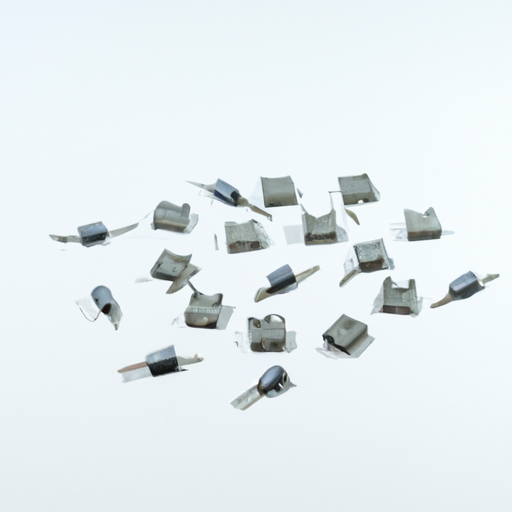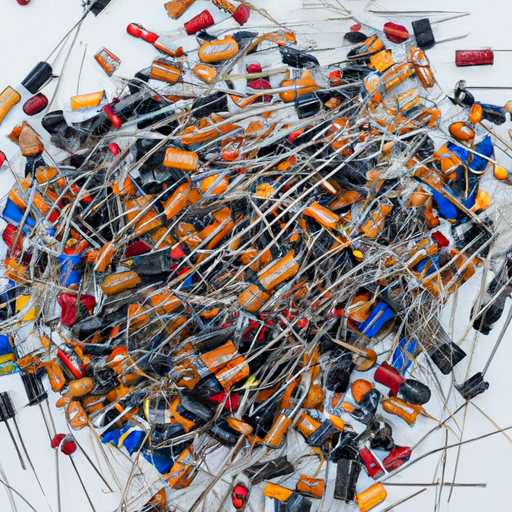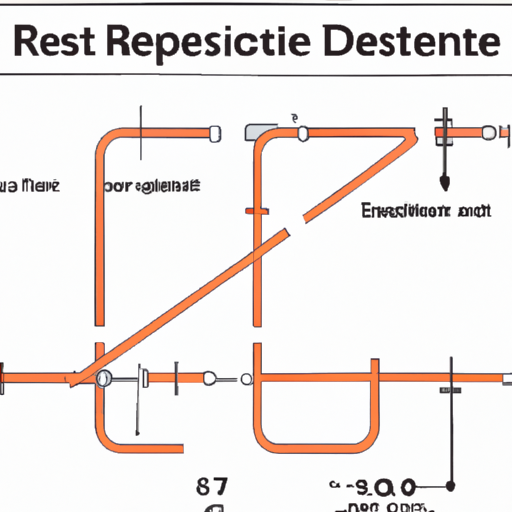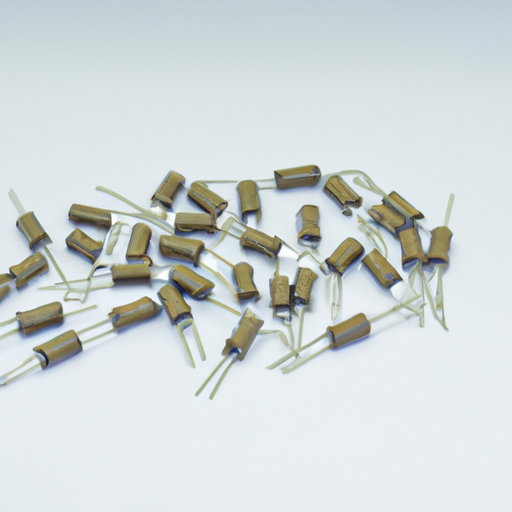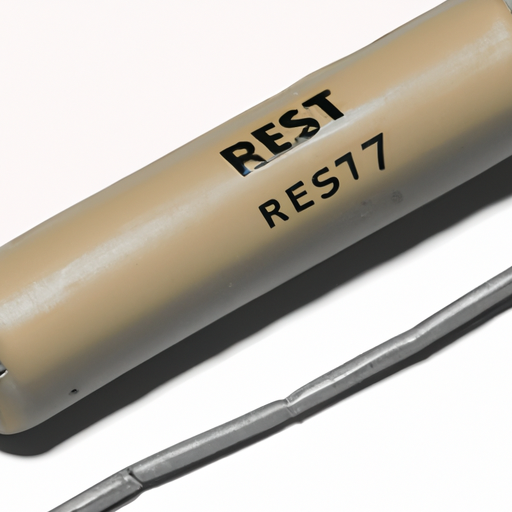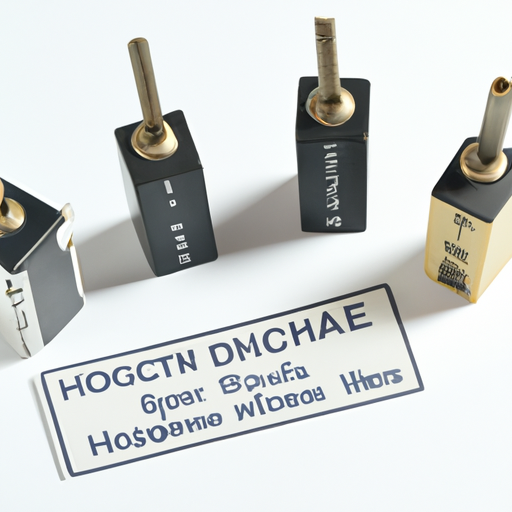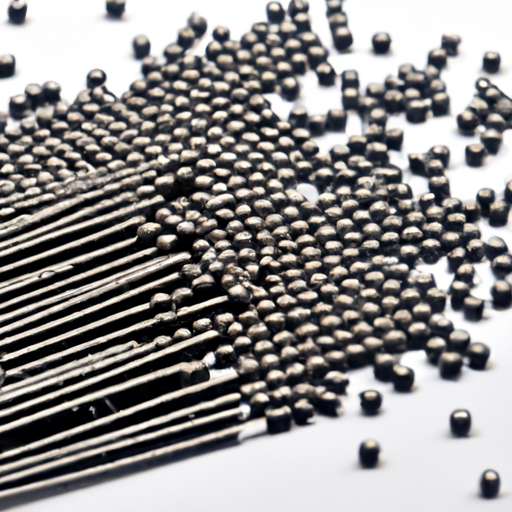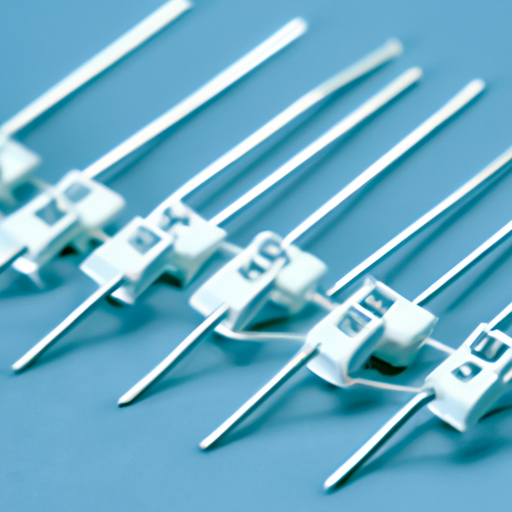The Manufacturing Process of Precision Resistors
I. Introduction
Precision resistors are essential components in modern electronics, providing accurate resistance values that are crucial for the performance of various devices. Defined as resistors with a tolerance of 1% or less, these components are integral in applications where precision is paramount, such as in measurement instruments, medical devices, and aerospace technology. The manufacturing process of precision resistors is intricate and involves several stages, from design to quality control, ensuring that the final product meets stringent specifications.
II. Types of Precision Resistors
A. Thin-Film Resistors
Thin-film resistors are made by depositing a thin layer of resistive material onto a substrate. They are known for their high accuracy, low noise, and excellent temperature stability. Common applications include precision measurement devices and high-frequency circuits.
B. Thick-Film Resistors
Thick-film resistors are created by printing a paste of resistive material onto a substrate and then firing it at high temperatures. They are generally more robust than thin-film resistors and are widely used in consumer electronics and automotive applications.
C. Wire-Wound Resistors
Wire-wound resistors consist of a wire, typically made of a high-resistance alloy, wound around a core. They offer high precision and power handling capabilities, making them suitable for applications in power supplies and audio equipment.
D. Comparison of Different Types
While thin-film resistors excel in precision and stability, thick-film resistors are favored for their durability and cost-effectiveness. Wire-wound resistors, on the other hand, provide high power ratings but may not be as compact as the other types. The choice of resistor type depends on the specific requirements of the application.
III. Materials Used in Precision Resistor Manufacturing
A. Conductive Materials
1. **Metal Films**: Thin-film resistors often use metal films such as nickel-chromium or tantalum nitride due to their excellent stability and low temperature coefficients.
2. **Carbon Compositions**: Thick-film resistors may utilize carbon-based materials, which provide good performance at a lower cost.
B. Substrates
1. **Ceramic**: Commonly used for both thin and thick-film resistors, ceramics offer excellent thermal stability and electrical insulation.
2. **Glass**: Glass substrates are used for their high thermal resistance and stability, particularly in high-temperature applications.
3. **Polymer**: Polymers are increasingly being used for their lightweight and flexible properties, especially in modern electronic devices.
C. Protective Coatings
1. **Epoxy**: Epoxy coatings provide a robust protective layer against environmental factors, enhancing the durability of resistors.
2. **Silicone**: Silicone coatings offer excellent thermal stability and flexibility, making them suitable for high-performance applications.
IV. The Manufacturing Process
A. Design and Prototyping
The manufacturing process begins with design and prototyping, where engineers define the electrical specifications and mechanical design of the resistor. This stage is crucial for ensuring that the resistor will meet the required performance standards.
B. Material Preparation
Once the design is finalized, the next step involves sourcing raw materials. Quality control is essential at this stage to ensure that all materials meet the necessary specifications for conductivity, stability, and durability.
C. Fabrication Techniques
1. **Thin-Film Deposition**: This process involves depositing a thin layer of resistive material onto a substrate using techniques such as sputtering or evaporation. Sputtering involves bombarding a target material with ions, while evaporation involves heating the material until it vaporizes and condenses on the substrate.
2. **Thick-Film Printing**: Thick-film resistors are produced by screen printing or inkjet printing a paste of resistive material onto a substrate. The printed resistors are then fired in a kiln to cure the paste and form a solid resistive layer.
3. **Wire-Wound Fabrication**: For wire-wound resistors, the manufacturing process includes selecting the appropriate wire and winding it around a core. The winding process must be precise to ensure consistent resistance values.
D. Trimming and Calibration
After fabrication, resistors undergo trimming and calibration to achieve the desired resistance values. Laser trimming is a common technique used to adjust the resistance by removing material from the resistor. Electrical testing is then performed to verify that the resistor meets its specifications.
E. Encapsulation and Coating
The final steps in the manufacturing process involve encapsulating the resistors and applying protective coatings. This ensures that the resistors are protected from environmental factors such as moisture and temperature fluctuations, which could affect their performance.
V. Quality Control and Testing
A. Importance of Quality Control
Quality control is critical in the manufacturing of precision resistors, as even minor deviations can lead to significant performance issues in electronic applications. Rigorous testing ensures that each resistor meets the required specifications.
B. Testing Methods
1. **Resistance Measurement**: This involves using precision instruments to measure the resistance of each resistor, ensuring it falls within the specified tolerance range.
2. **Temperature Coefficient Testing**: This test evaluates how the resistance changes with temperature, which is crucial for applications where temperature variations are expected.
3. **Long-Term Stability Tests**: These tests assess the resistor's performance over time, ensuring that it maintains its specifications under prolonged use.
C. Certification and Standards Compliance
Precision resistors must comply with various industry standards and certifications, such as ISO and RoHS, to ensure their reliability and safety in electronic applications.
VI. Applications of Precision Resistors
Precision resistors find applications across a wide range of industries:
A. Consumer Electronics
In consumer electronics, precision resistors are used in devices such as smartphones, televisions, and audio equipment, where accurate signal processing is essential.
B. Industrial Applications
In industrial settings, precision resistors are employed in control systems, automation equipment, and instrumentation, where reliability and accuracy are critical.
C. Medical Devices
In the medical field, precision resistors are vital in diagnostic equipment, monitoring devices, and therapeutic instruments, ensuring accurate readings and safe operation.
D. Aerospace and Defense
In aerospace and defense applications, precision resistors are used in navigation systems, communication devices, and control systems, where performance and reliability are non-negotiable.
VII. Future Trends in Precision Resistor Manufacturing
A. Advances in Materials Science
The future of precision resistor manufacturing is likely to be influenced by advances in materials science, leading to the development of new materials that offer improved performance and stability.
B. Automation and Industry 4.0
The integration of automation and Industry 4.0 technologies is expected to enhance the manufacturing process, improving efficiency and reducing production costs.
C. Environmental Considerations
As sustainability becomes increasingly important, manufacturers are exploring eco-friendly materials and processes to minimize the environmental impact of precision resistor production.
VIII. Conclusion
Precision resistors play a crucial role in the functionality of modern electronic devices, and their manufacturing process is a complex interplay of design, material selection, fabrication, and quality control. As technology continues to evolve, the demand for precision resistors will only increase, driving innovations in materials and manufacturing techniques. Understanding the intricacies of this process not only highlights the importance of precision resistors but also sheds light on the future of electronic components in an ever-advancing technological landscape.

